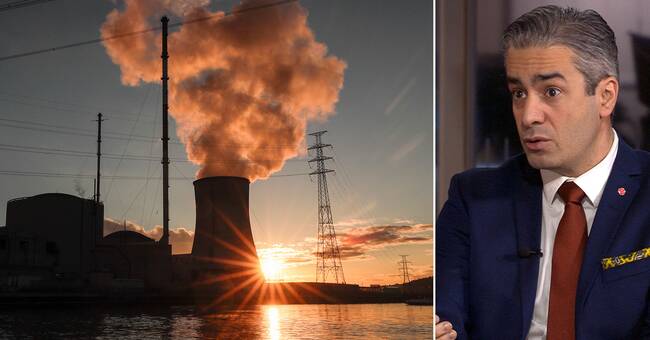In a leaked draft from the European Commission, which several international media have read, it is proposed that both nuclear power and natural gas be listed as sustainable types of energy in the so-called taxonomy - the regulations for green investments.
For nuclear power, it is based on certain requirements being met, including that the waste must be stored safely.
But the question of the status of nuclear power divides the EU countries.
Among the proponents who want to see nuclear power as a future solution is France, while Germany stands for the resistance and instead wants to see natural gas as a solution in the step from fossil to renewable.
Up to investors
Sweden has not yet taken a side.
- There are situations where it can be sustainable, if you compare with what you would otherwise use, how you have obtained the fuel, uranium, and how to store the waste.
Depending on those factors, it can be sustainable in some countries, says Khashayar Farmanbar.
According to the Minister of Energy, nuclear power plays an important role in Sweden today.
Whether nuclear power should also be included as a future type of energy in the green transition is up to those who are prepared to invest.
- There is talk of the next generation of nuclear power, but no one has really seen it outside a laboratory.
And you can not tie a future energy system to that, says Khashayar Farmanbar.
Cheaper with wine power
Finland recently started a third nuclear reactor, sixteen years after construction began.
The new reactor at the Olkiluoto nuclear power plant has Europe's largest capacity, but Khashayar Farmanbar sees other types of energy as more profitable at present.
- Today, wind power produces electricity for 30 öre per kilowatt hour, the Finnish reactor costs a little over 1 kroner.
It is over three times as expensive to produce electricity, and it will drive up the price permanently for customers, he says.

